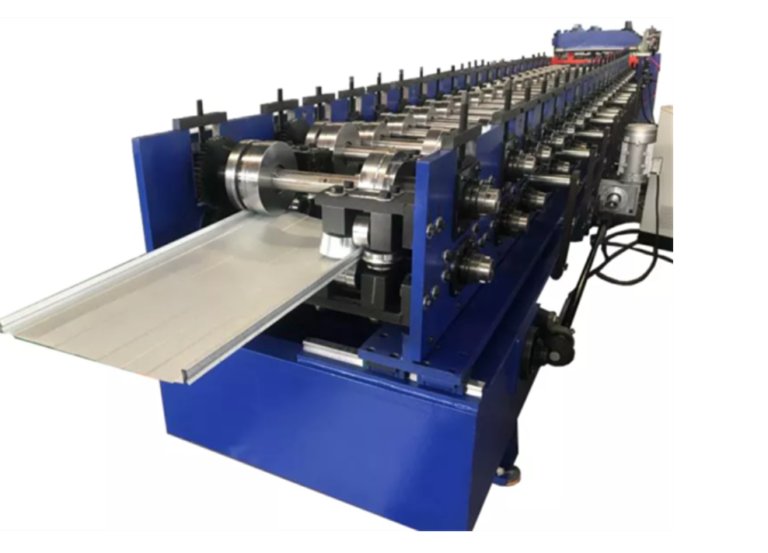Roofing is one of the most crucial aspects of construction, whether it’s for a residential, commercial, or industrial project. The quality, efficiency, and safety of roof installation greatly depend on the tools and equipment used. In today’s roofing industry, roofing machines have become indispensable, allowing contractors to work faster, produce precise results, and handle projects of varying complexity with ease.
1. Why Roofing Machines Are Essential
Roofing machines are specifically designed to automate and improve the roof installation process. Traditionally, roofing tasks like panel cutting, bending, or seaming required manual labor, which was time-consuming and often less precise. With modern roofing machines, contractors can:
- Increase installation speed
- Achieve consistent and accurate results
- Reduce material waste
- Improve worker safety
- Take on larger projects with fewer laborers
In short, these machines turn a labor-intensive process into an efficient and profitable operation.
2. Types of Roofing Machines
The roofing industry offers a variety of machines, each serving a specific purpose. Here are some of the most common:
a) Roll Forming Machines
Roll forming machines are used to create custom metal roofing panels directly on-site or in a workshop. They shape flat metal coils into panels with the exact dimensions and profiles needed for the project. This eliminates the need for ordering pre-fabricated panels, saving time and transportation costs.
Benefits:
- Custom panel lengths to reduce waste
- On-site production for convenience
- Multiple profile options for different roofing styles
b) Seaming Machines
Seaming machines are essential for standing seam metal roofs. They mechanically close the seams between panels, ensuring a watertight finish. These machines work much faster than manual seaming and produce a uniform look across the roof.
Benefits:
- Improved water resistance
- Faster seam closure compared to manual tools
- Consistent finish
c) Panel Curving Machines
For projects that require curved metal roofs, panel curving machines are indispensable. They bend panels to precise radii without damaging the metal’s surface, making them ideal for architectural designs and specialized structures.
Benefits:
- Perfect for dome or arched roofs
- Maintains panel integrity
- Smooth, aesthetic curves
d) Portable Roof Panel Machines
These compact machines are perfect for contractors who frequently move between job sites. They are designed to produce panels on-site with minimal setup time, increasing flexibility for smaller-scale projects.
Benefits:
- Easy to transport
- Quick setup and operation
- Ideal for remote job locations
e) Roofing Hoists & Conveyors
While not forming machines, hoists and conveyors are vital for moving materials up to the roof safely and efficiently. They reduce the physical strain on workers and help maintain productivity throughout the project.
Benefits:
- Improves worker safety
- Speeds up material delivery to the rooftop
- Reduces fatigue and injury risk
3. Benefits of Using Roofing Machines
The advantages of using roofing machines go beyond speed and efficiency:
- Precision: Machines deliver exact measurements and shapes, ensuring a professional finish every time.
- Cost Savings: Reduced labor hours and material waste translate into higher profits.
- Consistency: Every panel or seam meets the same quality standards.
- Versatility: Machines can handle different roofing materials and profiles, making them suitable for diverse projects.
- Safety: By minimizing manual labor, machines lower the risk of workplace injuries.
4. Choosing the Right Roofing Machine
When investing in roofing machines, consider the following:
- Project Type: Large-scale commercial projects may require industrial-grade roll formers, while small residential jobs might benefit from portable options.
- Material Compatibility: Ensure the machine works with the types of metal you commonly use, such as steel, aluminum, or copper.
- Profile Options: Look for machines that can produce multiple panel profiles to increase your service offerings.
- Budget and ROI: While roofing machines can be expensive, their time-saving and productivity-boosting benefits often justify the cost.
- Brand Reputation: Choose equipment from trusted manufacturers with good after-sales support and spare parts availability.
5. Maintenance Tips for Roofing Machines
To ensure your machines remain in top condition:
- Clean them after every project to remove dust, debris, and metal shavings.
- Lubricate moving parts regularly to prevent wear.
- Inspect for worn-out components and replace them promptly.
- Store machines in a dry, covered space to avoid rust and damage.
- Schedule periodic professional servicing.
Final Thoughts
Roofing machines have revolutionized the roofing industry by making installations faster, safer, and more precise. Whether you’re working on a residential metal roof or a large-scale commercial building, having the right equipment can make a huge difference in both productivity and quality.


